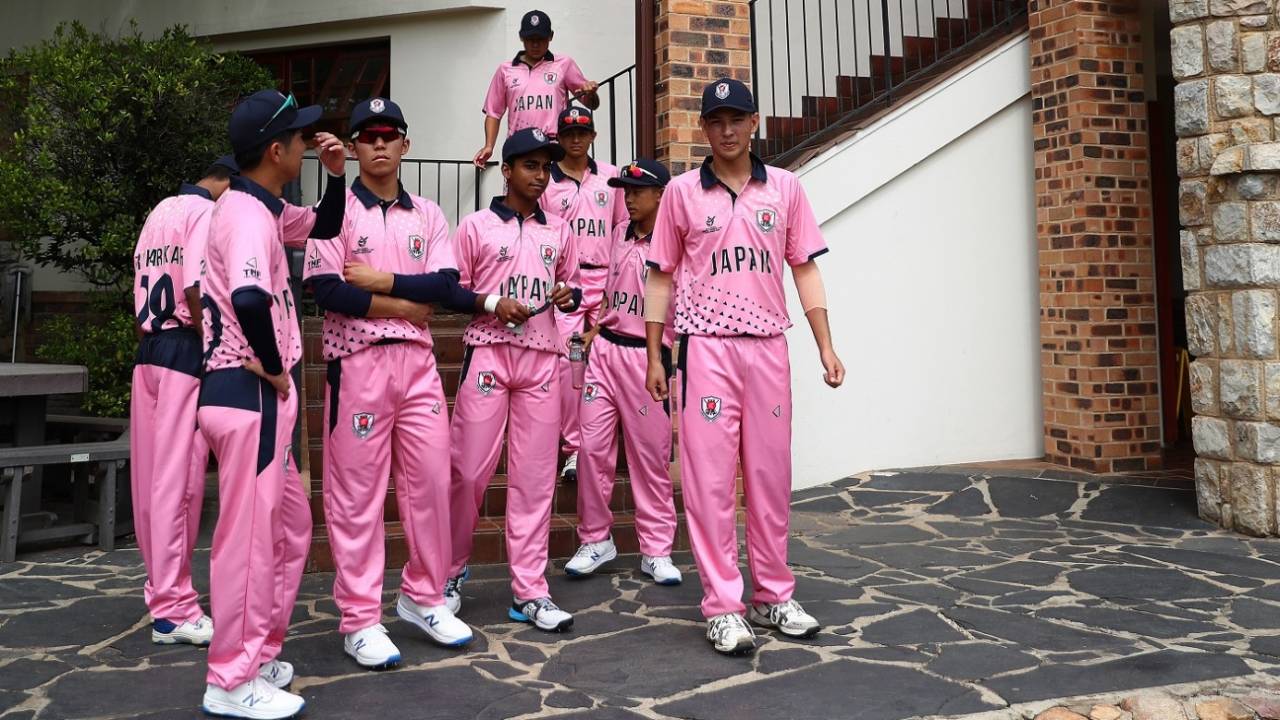In smalltown South Africa, cricket's future gathers to make a mark
For teams like Japan, it's an experience of a lifetime and they're soaking in everything a global event has to offer
Sreshth Shah in Kimberley
16-Jan-2020
Getty Images
"World Cup? What World Cup?" That's the most common question this correspondent faced while trying to explain why he flew over 15 hours from India to reach Johannesburg.
Right from the immigration officer at Johannesburg's OR Tambo Airport to the taxi driver taking me to the hotel, nobody in the city seemed to know that the biggest cricket tournament for juniors was beginning in two days' time. In a city where multicultural activities happen through the year, it's probably natural that a tournament featuring a bunch of teenagers, of whom we know very little, has slipped under the radar.
So it's perhaps fitting that the ICC has consciously taken the tournament to the country's smaller towns, hoping to ignite a buzz within a smaller community that no big city could replicate. The Under-19 World Cup takes place in four venues: the historic town of Kimberley, the college town of Potchefstroom, the judicial capital of Bloemfontein and Benoni, famous to the world only for being Charlize Theron's birthplace.
But it shall be unfair to say that nobody in Johannesburg knew. The staff, for example, at a posh hotel in Sandton, who had to cater to not only the four teams - New Zealand, Australia, Zimbabwe and Japan - staying there, but also their extended crew of family and friends. Years of sacrifice from these children's parents had brought them to this moment, to savour their wards strutting out in the national colours at a World Cup. And they weren't going to miss it for the world.
For Jayden Schadendorf and his father, it was a bit of déjà vu. Two years ago, Jayden was representing Zimbabwe at the World Cup in New Zealand. Now, he was here to support his younger brother Dane make the big jump. Dane sat around occupied with his phone while his father and brother drank beer at the hotel bar.
They were discussing how Zimbabwe's warm-up game against India could have gone differently had Schadendorf - who top-scored with 81 - batted just a little bit longer. Back home, across the border, they are struggling to put together funds to host the next round of domestic first-class games but the attitude among the team here is one of determination.
The scene at the hotel lobby was vastly different. Sitting there were the families of the Japanese players. For many of them, it was an adventure of a different kind. Having supported their children through their dreams of playing a relatively unknown sport in their country, this was the time to see what the hype around the Cricket World Cup was all about. Japan faced massive defeats in their two warm-up games, but that didn't allow the mood in their camp to fall. Bursts of laughter tore through the lobby, a stark contrast to the Zimbabweans, providing an insight that for every team at the tournament, their goals were different.
The warm-up games, too, were played out in inconspicuous surroundings. At the lush grounds of St Stithians College - the alma mater of Kagiso Rabada and Grant Elliot - Australia thumped Canada by nine wickets in their final practice game, but in front of a crowd of none. The children at the school were busy watching their own school play a club side from England, perhaps unaware that a future Steven Smith or Josh Hazlewood were playing in the fields right next to them.
On the final night of the teams' stay in the city, I approached a team manager to set up some interviews. His response: "Sorry, it's past their bedtime." A reminder of how young some of these cricketers are. In some countries, they can't cast a vote. In others, they're ineligible to buy a drink.
That they are especially vulnerable was brought home as the teams entered the banquet hall of the hotel to attend the ICC's mandatory lecture on Anti-Corruption. While the decisions made by their parents have brought them this far, from here onwards, their destiny - both on and off the field - is firmly in their hands.
Sreshth Shah is a sub-editor at ESPNcricinfo
